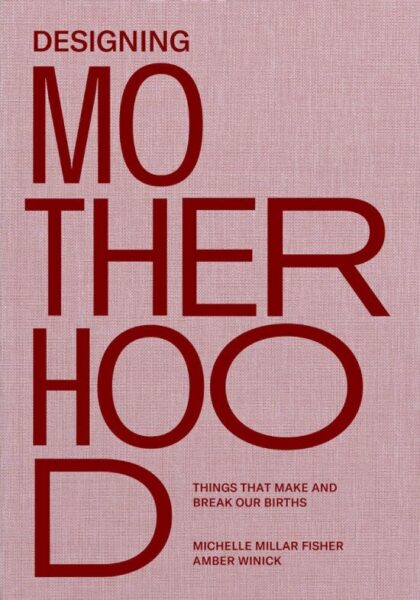During the 2022-23 academic year, Art Hx presents a programming series entitled: Healthcare, Policy, and Politicization. This series probes how health and medicine are politicized, and how medicine and medical knowledge shape policy.
Inspired by the Art Hx team’s interest in “Policy and Politicization” (one of our 35 research themes), we find this programming series particularly urgent given the criminalization of Transgender people, the recent repeal of Roe vs. Wade in the United States, global COVID-19 vaccine inequities related to World Trade Organization intellectual property policy, climate catastrophe, and myriad other issues.
Past Events
Politics of Contamination: Nuclear Impact on Community Health
Date: Monday, October 24, 2022
Time: 12:30 to 1:20pm ET
Panelists: Arieann Harrison, Jessica Lambert, and Mallery Quetawki
Registration Link: https://bit.ly/arthxnuclear
Organizers: Benjamin Roberts and Joseph Litts
Pollution is a global threat, but not all are affected equally. Since outsourcing much of their industrial production, many Western cities do not suffer the immediate effects of pollution as severely as they once did. Similarly, while many governments are committed to nuclear plants, testing nuclear weapons, and mining uranium, the ill effects of these activities are not equally distributed. This is a crisis of health care.
How does the nuclear industry affect community health? Which communities are most affected? How has the landscape been politicized through nuclear policy? Within these political and ecological realities, what might models of care look like, either now or in the future? This conversation will consider how legislation, policy, and practice around nuclear power impact health and well-being.
Co-Sponsors: The Humanities Council Magic Grant and the Department of Art & Archaeology
Speaker bios
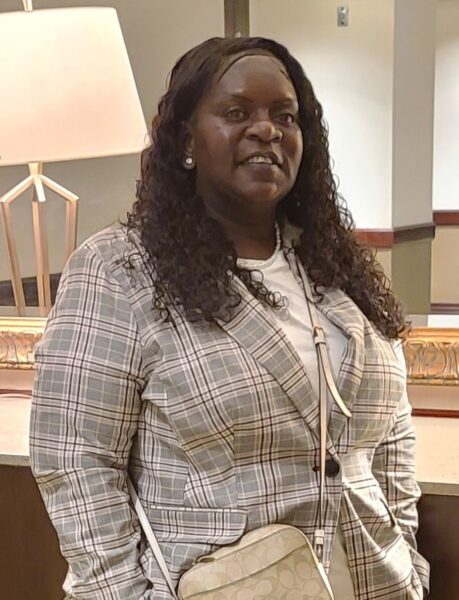
Arieann Harrison is the Founder of The Marie Harrison Community Foundation, Inc, for social and environmental justice in San Francisco’s District 10, Bay View/Hunters Point area, which is the 2nd largest Super-Fund in the U.S. As a community leader and advocate for social and environmental justice for long term residents who have suffered from high rates of cancer and respiratory illness’ caused by over 300 documented toxic sites located in the Bay View/ Hunter Point district where where the majority of residents live below the poverty line. Arieann is working to educate and mobilize residents with solution-based tools to not only improve generational health problems brought on by long-term systemic social, economic, and environmental injustice, but also use to find scientific and engineering long term solutions to combat climate change, with transparent accountability to the community.
“You can’t have environmental justice without social and economic equity.”
#CanWeLive Coalition
Arieann focuses on the science of the impact of historical genocide on residents in disenfranchised communities in the Bay View by systemic racial and economic injustice, as well as the move toward displacement of community residents still fighting to be heard by gentrification.
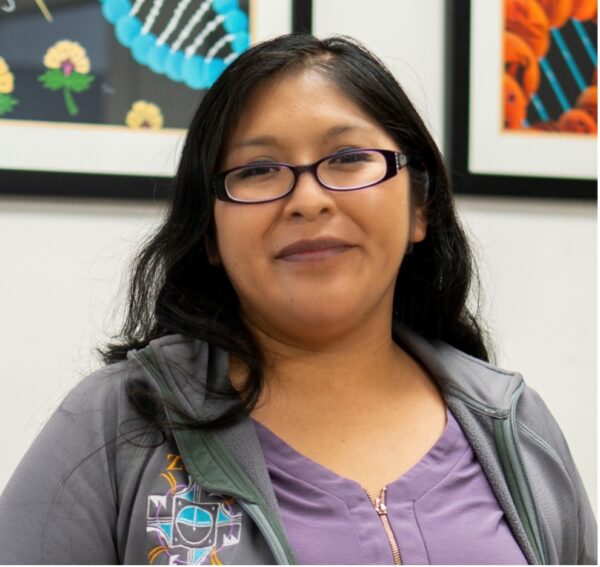
Photo Credit: Jose Gonzales-UNM COP
Mallery Quetawki is from the rural Pueblo of Zuni in western New Mexico. She is the mother of two and shares residence in both Albuquerque and Zuni Pueblo. She received her B.S. in Biology with a minor in Art studio in the summer of 2009 from UNM-ABQ. She is currently the Artist-in-Residence with the Community Environmental Health Program at the University of New Mexico College of Pharmacy. Mallery has used art to translate scientific ideas, health impacts and research on uranium mines that are currently undergoing study in several Indigenous communities. Her work has been featured on National Institutes of Health websites and published in peer-reviewed journals on environmental health and academic medicine. Her painting entitled, “Our Microflora” is on permanent display at the Massachusetts Institute of Technology Department of Biological Engineering.
Mallery has a large-scale mural titled, “Morning Prayer”, on permanent display at the Indian Pueblo Cultural Center which depicts the history of the Zuni People from Creation to modern times. Her oil painting symbolizing the ties between the Grand Canyon and Zuni culture is part of a traveling collaboration called the Zuni Map Art Project. The collaborative set of art has been displayed at the American Museum of Natural History in New York City, NY and other museums and galleries in the US. Other noted works include a 12-piece pastel and ink set entitled “What Makes a Zuni?” on permanent display at the Zuni IHS in Blackrock, NM and a mural painted at the Ho’n A:wan Park in Zuni Pueblo September 2018. Mallery’s recent work was part of an interactive Google Doodle that kicked off Native American Heritage Month on November 1, 2021.
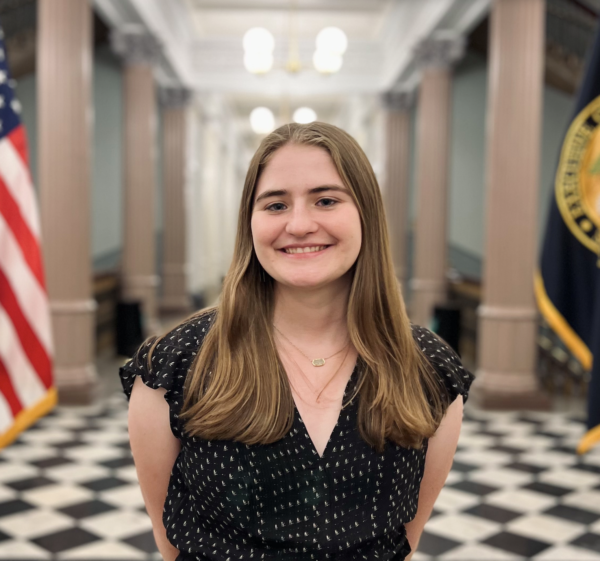
Jessica is a citizen of the Choctaw Nation and a first-generation descendant of the Eastern Band of Cherokee Indians. She recently graduated from Princeton where she studied environmental science, American Indian studies, and political anthropology. At Princeton, her work focused on environmental justice issues on American Indian lands and communities. She served as a research fellow on the Nuclear Princeton project, where she investigated the public and environmental health consequences of nuclear development on Native lands and bodies. Her senior thesis looked at the impact of a US Military weapons manufacturing facility on the health and environment of the Choctaw Nation. Currently, Jessica is a government relations fellow for The Wilderness Society in Washington, DC. Previously, she has worked on tribal environmental issues at the White House Council on Environmental Quality, the Institute for Tribal Environmental Professionals, the National Congress of American Indians, and the Kachemak Bay National Estuarine Research Reserve (NOAA).
curative / spaces, 2021-2022
During the 2021-2022 academic year, Art Hx presented curative / spaces, a programming series that explored the relationship between race, space, and healthcare through the lens of art and design. We hosted a range of events that consider how experiences of race and medicine are spatially produced in architecture, design, and in the circulation of art. We wanted to reflect on how these relationships affect access to resources, meanings about the body, and people’s understandings and conceptions of healthcare. We hoped the series will help us imaginatively redesign these processes of health injustice and build new practices of care together through art’s ability to transform society.
We look forward to building upon the conversations we had through curative / spaces next year. Information about programming for the 2022-2023 academic year will be announced in the coming months.
Art Hx 2022 Symposium: curative / spaces
Date: Thursday, April 28-Friday, April 29, 2022
Registration link: https://bit.ly/ArtHxSymposium
The full symposium schedule, information about speakers, and paper abstracts can be found here.
Keynote speakers: Andrea Chung and Mabel O. Wilson
Panelists: Linda Black Elk, Michaela Clark, Cecilio M. Cooper, Carolyn Finney, Keren Hammerschlag, Sarah Khan, Daniella Rose King, Riva Lehrer, Sadie Levy Gale, Nate Lewis, Joseph Litts, Elise Mitchell, Luke Naessens, Paige Patchin, Sharrona Pearl, Chimwemwe Phiri, Shelley Angelie Saggar, Ellen Sebastian Chang, and Giulia Smith
Organizers: Anna Arabindan-Kesson and Jessica Womack
curative / spaces is organized as a call for the imaginative redesign of processes of health injustice and the building of new practices of care together through art’s ability to transform society.
Bringing together artists, curators, writers, organizers, and academics, curative / spaces offers a forum for the exploration of the relationships between race, space, and healthcare through the lens of art and design. Panelists will consider the many implications of these intersections while also reflecting upon their significance for communities’ access to resources, meanings about the body, and our understandings and conceptions of healthcare.
Sponsors: Princeton University’s Humanities Council Exploratory Grant in Collaborative Humanities, Center for Digital Humanities, Department of Art & Archaeology, Lewis Center for the Arts, and School of Architecture; 2021-24 Public Humanistic Inquiry Lab, Colby College; Confabulations: Durham University Institute for Medical Humanities, Leicester Wellcome Trust ISSF, and Social Sciences and Humanities Research Council of Canada
A Conversation with curator Natalie Willis
Date: Monday, March 14, 2022 at 4:30pm ET
Registration link: https://bit.ly/ArtHxNWillis
Willis will discuss her curatorial practice, how it is shaped by a motivation to care for people and histories, and a recent exhibition she organized on medicine, memory, and public health in the Bahamas.
Co-Sponsors: The Humanities Council Exploratory Grant in Collaborative Humanities, the Center for Digital Humanities, and the Department of Art & Archaeology
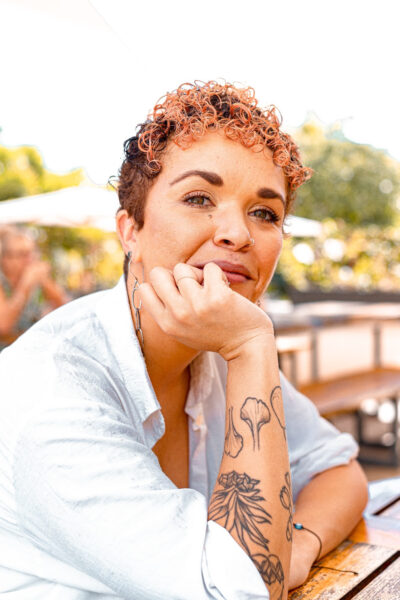
Natalie Willis is a British-Bahamian curator and cultural worker. Born and raised in Grand Bahama, she received her BA (Hons) and MA in Fine Art at York St John University in the UK. Following her 6 year tenure at National Art Gallery of The Bahamas, Willis now works as a studio administrator for Bahamian artist Anina Major. During her time as Associate Curator at the NAGB, she sustained a concerted focus on writing aimed at decolonizing and decentralizing the art archive, adding to the literature on Bahamian and Caribbean visual culture, and developing her burgeoning curatorial practice. She was responsible for maintaining, documenting, researching, and historicizing the National Collection and planning and installing exhibitions.
As an emerging curator desperately trying to not contribute to the brain-drain of the Caribbean, her practice has a concerted focus on knowledge building, access (through language), and speaking to the way the colonial tourism of the late 1800s shaped the cultural and physical landscape of the Anglo-Caribbean. She was the first curator at the museum to include bilingual wall texts (in English and Haitian Kreyol), the first to have a group show dedicated featuring the work of Black women artists of The Bahamas, and alongside colleague Abby Smith, she developed the museum’s inter-island traveling exhibition as a way to combat the difficulties that the country’s archipelagic geography presents in providing access to cultural patrimony.
A Conversation with the Curators of Designing Motherhood
Monday, October 25, 2021 at 4:30pm ET
Amber Winick and Michelle Millar Fisher, Designing Motherhood
What do the pregnancy test, the pessary, the at-home abortion kit, the state of family leave, midwifery care, and postpartum practices have in common, and why do designs that matter so much often go so unremarked? The designed objects and systems that surround us when it comes to menstruation, birth control, (contra)conception, pregnancy, childbirth, and postpartum vary as oddly, messily, and dramatically as the stereotypes suggest. Designing Motherhood unfolds the compelling design histories and real-world uses of the designs that shape our reproductive experiences. In a book, two-part exhibition, design curriculum, Storybanking initiative, and public programming series, this project unfolds the iconic, conceptual, archaic, titillating, emotionally charged, or just plain strange designs that have defined the relationships between people and babies during the past century. Join Michelle Millar Fisher, the Wornick Curator of Contemporary Decorative Arts at MFA Boston, and Amber Winick, writer and design historian, as they discuss the project and their vital partnership with thought leaders at the Philadelphia-based Maternity Care Coalition, a forty year old organization dedicated to improving the lives of pregnant and parenting families, and their children, ages 0-3.
Co-Sponsors: The Humanities Council Exploratory Grant in Collaborative Humanities, the Center for Digital Humanities, and the Department of Art & Archaeology
Speaker bios
Hailing from Scotland, Michelle Millar Fisher has worked as an educator, curator, and historian in universities and museums including the Museum of Modern Art, the Philadelphia Museum of Art, the Guggenheim, and the MFA Boston where she is currently the Wornick Curator of Contemporary Decorative Arts. Her work focuses on the intersections of people, power, design, and craft. She has co-authored many books, essays, and exhibitions including Design and Violence and Items: Is Fashion Modern?
Amber Winick is a design historian, writer, and mother of three based in New York’s Hudson Valley. She is the recipient of two Fulbright Awards, and has lived and researched design around the world. She consults with individuals, schools, and organizations, and writes about the designed systems, environments, and objects that empower (and disempower) us, particularly around birth, family leave, caregiving, education, and early childhood.
Medical Bondage, Mobility, & Fugitive Logic: Revisiting Harriet Tubman as an Intellectual Figure
Monday, September 27, 2021 at 4:30pm ET
Dr. Deirdre Cooper Owens, Charles and Linda Wilson Professor in the History of Medicine; Director, Humanities in Medicine, University of Nebraska–Lincoln
Building off the new emphasis on black women’s intellectual history, Deirdre Cooper Owens probes Harriet Tubman’s intellectual offerings via her community work via entrepreneurship, abolitionism, herbalism, and institution building. As a historian of medicine, Cooper Owens has documented the importance of Black women’s healing practices to the development of American medicine. Herbalism is one of the foundations of their healing arts (and Harriet Tubman was skilled in this artform). In her presentation, Dr. Cooper Owens hopes to reveal Tubman as more than a courageous freedom fighter; but also, as a fierce intellectual figure. In order to liberate dozens of enslaved people, Tubman learned the topographical and ecological landscape of Maryland’s Eastern Shore where she mapped out both a spiritual cartography of freedom in routes and roots. Meanwhile, Tubman’s comments on faith and spirituality reveal a complex cosmology that Cooper Owens has coined “spiritual cartography.” Led by her faith, towards the end of her long life, Tubman was one of the founders of the National Association of Colored Women’s Club, whose motto, “Lifting As We Climb,” embodied a more politicized theory of Black liberation rooted in Christianity, civics and the social contract. Ultimately, I suggest that if we are to truly value Harriet Tubman’s contributions to the black freedom struggle, we must take her ideas as seriously as we do her abolitionist actions.
Co-Sponsors: The Humanities Council Exploratory Grant in Collaborative Humanities, the Center for Digital Humanities, and the Departments of African American Studies and Art & Archaeology
Suggested readings
Clinton, Catherine. Harriet Tubman: The Road to Freedom. Boston, MA: Little, Brown, 2004.
Larson, Kate Clifford. Bound for the Promised Land: Harriet Tubman, Portrait of an American Hero. New York, NY: Ballantine, 2004.
Hobson, Janell. “Harriet Tubman: A Legacy of Resistance.” Meridians 12, no. 2 (2014): 1–8.
Speaker bio
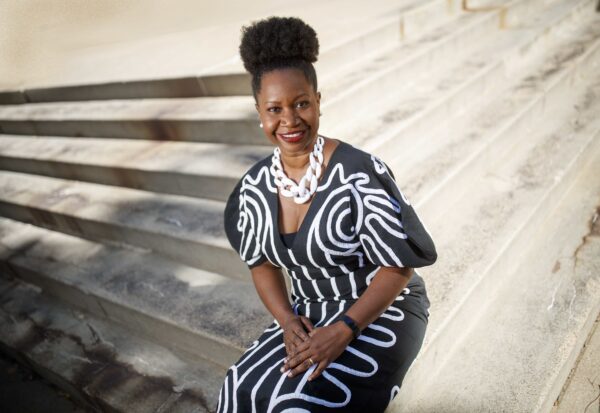
Deirdre Cooper Owens is The Charles and Linda Wilson Professor in the History of Medicine and Director of the Humanities in Medicine program. She is also an Organization of American Historians’ (OAH) Distinguished Lecturer. A popular public speaker, she has published essays, book chapters, and blog pieces on a number of issues that concern African American experiences. Her first book, Medical Bondage: Race, Gender and the Origins of American Gynecology (UGA Press, 2017) won the 2018 Darlene Clark Hine Book Award from the OAH as the best book written in African American women’s and gender history.
Professor Cooper Owens is also the Director of the Program in African American History at the Library Company of Philadelphia, the country’s oldest cultural institution. Currently, she is working on a second book project that examines mental illness during the era of United States slavery and is also writing a popular biography of Harriet Tubman that examines her through the lens of disability. She primarily teaches classes on the history of medicine.
“He was running it like a plantation”: Psychiatric spaces and social death in the Jim Crow South
Monday, September 13, 2021 at 4:30pm ET
Dr. Kylie Smith, Associate Professor and the 2021-2022 President’s Humanities Fellow at the Fox Center for Humanistic Inquiry, Emory University
In 1967 a government inspector reported that conditions for Black patients in psychiatric hospitals in Alabama were the worst she’d ever seen, especially in terms of the physical spaces and in the lack of treatment options. Her report, and a subsequent court case, revealed the many ways that even psychiatric spaces in the American south could not escape the long shadow of the plantation as patients were put to work, shot, beaten, and left to die.
In this presentation, Dr. Kylie Smith explores the long history of the shadow of the plantation, as both a symbol and a reality, in state psychiatric hospitals in Georgia, Alabama, and Mississippi in the twentieth century. Drawing on extensive archival work Dr. Smith demonstrates that Black patients were subject to psychiatric spaces that were little more than the plantation reimagined: spaces in which containment, not cure, was the object.
Unravelling these systems has revealed the intersection with the Civil Rights movement, as well as the trend toward mass incarceration. It has also demonstrated the difficulty and ethical dilemmas of tracing the lives of vulnerable people in the psychiatric archive. In this sense, the process of this project raises important questions about the writing of history itself, revealing the power and politics inherent in Southern archives, especially at the intersection with the history of medicine.
Co-Sponsors: The Humanities Council Exploratory Grant in Collaborative Humanities, the Center for Digital Humanities, and the Departments of African American Studies, Art & Archaeology, and Religion
Suggested readings
Agamben, Giorgio. Homo Sacer. Sovereign Power and Bare Life. Stanford, CA: Stanford University Press, 1998.
LeFlouria, Talitha L. Chained in Silence: Black Women and Convict Labor in the New South. Chapel Hill, NC: University of North Carolina Press, 2016.
Metzl, Jonathan. The Protest Psychosis: How Schizophrenia became a Black disease. Boston, MA: Beacon Press, 2009.
Scott, David. “Preface: A Reparatory History of the Present.” Small Axe 52 (2017): vii–x.
Speaker bio
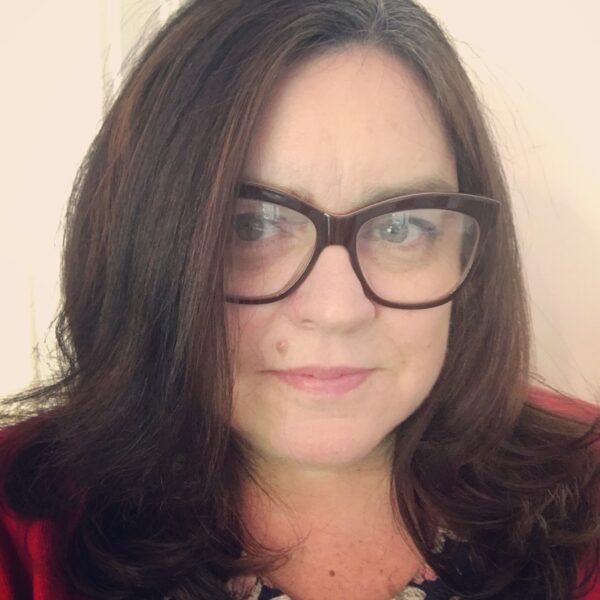
Dr. Kylie Smith is an Associate Professor and the 2021-2022 President’s Humanities Fellow at the Fox Center for Humanistic Inquiry at Emory University in Atlanta. Dr. Smith came to Emory from Australia in 2015 as the Andrew W. Mellon Faculty Fellow for Nursing and the Humanities, and her work at Emory has been divided between the School of Nursing and History Department where she teaches courses on the history of nursing, psychiatry and racism in health care. She is the author of the award-winning book “Talking Therapy: Knowledge and Power in American Psychiatric Nursing” (Rutgers University Press, 2020). Her new book, “Jim Crow in the Asylum: Psychiatry and Civil Rights in the American South” is supported by the G13 Grant from the National Library of Medicine and is under contract with the University of North Carolina Press. It will be published in 2023 as both a monograph and a digital Open Access project.
Observing the Past: Archives, Interpretation and Practices of Care
Thursday, May 6, 2021 at 9:00 am EST / 2:00 pm BST / 3:00 pm CEST / 9:00 pm AWST
Panelists: Dr. Edna Bonhomme, Dr. Ruth De Souza RN, PhD, FACN, Phoebe Nobles, and Emma Sarconi
This panel brings together curators, archivists, and academics who are committed to practicing care in the interpretation and collection of medical history archives. Speakers will discuss their work on collections management and experiences with facilitating public engagement and access. They will also offer their perspectives on some of the difficult questions around the collection, interpretation, and publication of medical history and imagery that continue to have an impact on the ways people are treated within the medical sphere and beyond.
This event is co-sponsored by the Rapid Response Magic Project of the Princeton University Humanities Council, the Addressing Racism Funding Initiative, Princeton University, and the Department of Art & Archaeology, Princeton University
Suggested readings
Dr. Edna Bonhomme, Dr. Ruth De Souza RN, PhD, FACN, Phoebe Nobles, and Emma Sarconi discussed how they practice care in the interpretation and collection of medical history archives, and they offered their perspectives on some of the difficult questions around the collection, interpretation, and publication of medical history and imagery that continue to have an impact on the ways people are treated within the medical sphere and beyond. The event recording can be found below. Additionally, to build upon their conversation, the panelists shared several texts that have proved helpful as they develop their research and practices of care. They have provided some of their own work as well.
From Dr. Edna Bonhomme:
Bhattacharya, Nandini. Contagion and Enclaves: Tropical Medicine in Colonial India. Liverpool, UK: Liverpool University Press, 2012.
Bonhomme, Edna. “Ways of Knowing.” The Baffler, May 5, 2021.
Bonhomme, Edna. “Germany’s Anti-Vaccination History Is Riddled With Anti-Semitism.” The Atlantic, May 3, 2021.
Bonhomme, Edna. “Troubling (Post)Colonial Histories of Medicine: Toward a Praxis of the Human.” Isis Vol. 111, no. 4 (2020): 830-833.
Goyal, Yogita. Runaway Genres: The Global Afterlives of Slavery. New York, NY: New York University Press, 2019.
Jacobs, Harriet. Incidents in the Life of a Slave Girl. Boston, MA: Thayer & Eldridge, 1861.
Mbembe, Achille. Necropolitics. Durham, NC: Duke University Press, 2019.
McKittrick, Katherine. “Plantation Futures.” Small Axe 17, no. 3 (2013): 1-15.
Randolph, Rev. Peter. From Slave Cabin to the Pulpit; the Autobiography of Rev. Peter Randolph: The Southern Question Illustrated and Sketches of Slave Life. Boston, MA: James H. Earle, 1893.
Roberts, Dorothy E. Killing the Black Body: Race, Reproduction, and the Meaning of Liberty. New York, NY: Pantheon Books, 1997.
Washington, Harriet A. Medical Apartheid: The Dark History of Medical Experimentation on Black Americans from Colonial Times to the Present. New York, NY: Doubleday, 2007.
From Dr. Ruth De Souza:
De Souza, Ruth. “Navigating the ethics in cultural safety.” In Cultural Safety in Aotearoa New Zealand, ed. Dianne Wepa (Port Melbourne, Australia: Cambridge University Press, 2015), 111–124.
De Souza, Ruth. “Motherhood, migration and methodology: Giving voice to the ‘other.’” The Qualitative Report 9, no. 3 (2004): 463-482.
De Souza, Ruth. “Returning the indigenous to the centre: a view from Aotearoa/New Zealand.” Diversity in Health and Care 6 (2009): 219–221.
De Souza, Ruth. “Culturally safe care for ethnically and religiously diverse communities.” In Cultural Safety in Aotearoa New Zealand, ed. Dianne Wepa (Port Melbourne, Australia: Cambridge University Press, 2015), 189-203.
De Souza, Ruth. “Is it enough? Why we need more than diversity in nursing – Australian College of Nursing.” Australian College of Nursing, December 4, 2018.
Geia L., K. Baird, K. Bail, L. Barclay, J. Bennett, O. Best, M. Birks, L. Blackley, R. Blackman, A. Bonner, et. al. “A unified call to action from Australian Nursing and Midwifery leaders: ensuring that Black Lives Matter.” Contemporary Nurse 56, no. 4 (2020): 297–308.
Lillie, Jade, Jax Jacki Brown, Kate Larsen, and Cara Kirkwood. The Relationship is the Project: Working with Communities. Melbourne, Australia: Brow Books, 2020.
Moorley, Calvin, Philip Darbyshire, Laura Serrant, Janine Mohamed, Parveen Ali, and Ruth De Souza. “Dismantling structural racism: Nursing must not be caught on the wrong side of history.” Journal of Advanced Nursing 76 (2020): 2450–2453.
From Emma Sarconi:
Caswell, Michelle. “Dusting for Fingerprints: Introducing Feminist Standpoint Appraisal.” Journal of Critical Library and Information Studies 3, no. 1 (2019): 1-36.
Farmer, Ashley. “Archiving While Black.” The Chronicle of Higher Education, July 22, 2018.
Howsam, Leslie. “In My View: Women and Book History.” SHARP News 7, no. 4 (1998): 1–2.
Overholt, John H. “Five theses on the future of special collections.” RBM: A Journal of Rare Books, Manuscripts, and Cultural Heritage 14, no. 1 (2013): 15-20.
Werner, Sarah. “Weaving a Feminist Book History.” Society for American Archivists Conference, 2018. Keynote address.
Speaker bios
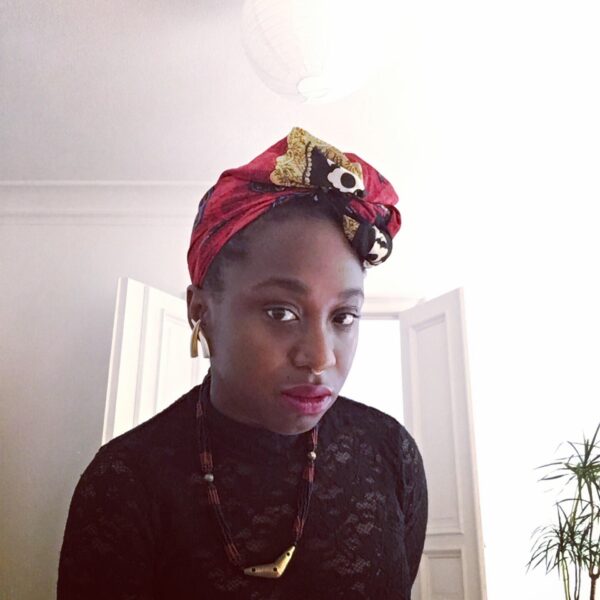
Dr. Edna Bonhomme is a historian and writer in Berlin, Germany. They earned their PhD in the history of science from Princeton University and a Master of Public Health from Columbia University. Their dissertation titled, “Plague Bodies and Spaces: Medicine, Trade, and Death in Ottoman Egypt, 1705-1830 CE,” examined the commercial and geopolitical trajectory of plague and its links to commercial, provincial, and imperial policies in several North African port cities. Their master’s thesis focused on HIV/AIDS and sex work in the Caribbean. Working with sound, text, and archives, Edna explores contagion, epidemics, and toxicity through decolonial practices and African diaspora worldmaking. A central question of their work asks: what makes people sick? Their practices trouble how people perceive modern plagues and how they try to escape from them. As a researcher, they answer this question by using textual archives and oral histories to unpack the variant notions of sickness and health as well as the modalities of care that shape the possibility for repair. Their artistic language combines science studies with traditional healing elements. Their project Black Health in Germany is part of their long-term research project that they have started in 2019 with a growing collection/archive on the representation of Black health and healing in Germany. Some of their critical multimedia projects have been featured at Haus Kulturen der Welt (Berlin), alpha nova galerie futura (Berlin), and the Austrian Academy of Women Artists (Austria). They have written for academic journals and popular press including Aljazeera, The Baffler, The Guardian, The Nation, Africa is a Country,The New Republic, ISIS History of Science Journal, Jacobin Magazine, Journal for North African Studies, Public Books, and other publications.
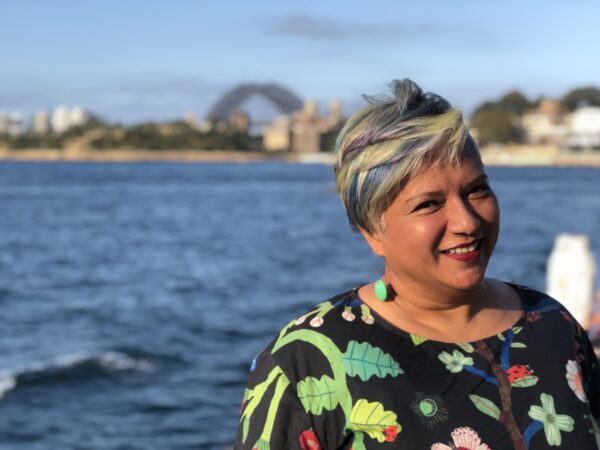
Dr. Ruth De Souza is a Vice-Chancellor’s Fellow at RMIT University in Melbourne, Australia. Based in the School of Art, she is a nurse, academic and community engaged researcher in gender, race, health and digital technologies. Prior to coming to RMIT, she was the academic co-convenor of the Data, Systems and Society Research Network (DSSRN), a collaborative research network across the University of Melbourne. Her Fellowship engages health professionals in finding new ways to understand, co-design and implement sustainable cultural safety initiatives in a range of health contexts. Ruth’s current projects include research on social isolation, digital technologies and the experiences of older people from culturally diverse backgrounds during COVID-19; how pregnant women from South Asian backgrounds used apps in pregnancy during the pandemic; affordances of patient generated health data in the community clinic and using design probes to facilitate discussions about digital health literacy among marginalised communities.
Phoebe Nobles is a Term Archivist at Mudd Manuscript Library at Princeton University. She has worked at Mudd in several temporary positions since 2016, and is a member of the Inclusive Description Working Group formed in 2019 by the Archival Description and Processing Team in Special Collections at Princeton University Library.
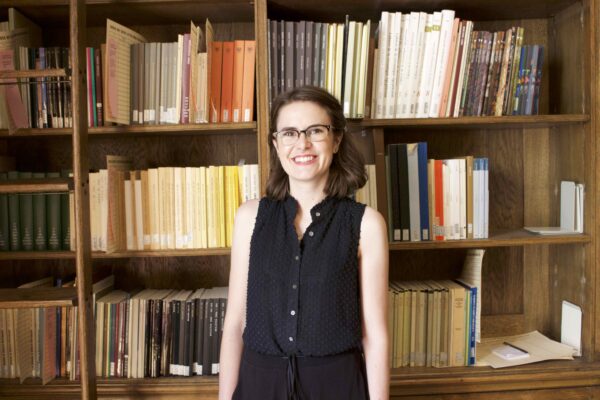
Emma Sarconi is the Reference Professional for Special Collections at Princeton’s Firestone Library. She as a BA in Book and Media Studies from the University of Toronto, an MA in English Literature from New York University and an MLIS from Long Island University. As a librarian and book historian, Sarconi seeks to facilitate conversations around the impact of special collections in our lives by providing quality reference services, instruction design, project management and event planning. She is the Chair of the RBMS Leab Exhibition Awards Committee, the co-Director of the Archival Silences Working Group at Princeton and the Project lead for the Her Book at Princeton project, an ongoing inventory of women’s ownership markings within Princeton Special Collections.
Conversation with Artists Annalee Davis and Julie Gough
Thursday, March 25, 2021 at 8:00 pm EDT / 8:00 pm AST | Friday, March 26, 2021 at 11:00 am AEST
This event will bring together two contemporary artists, Annalee Davis and Julie Gough, in conversation with Dr. Anna Arabindan-Kesson, Assistant Professor of African American Studies and Art & Archaeology at Princeton University, for a discussion on how their artistic practices are invested in exploring and highlighting the medical and scientific legacies of imperialism.
Speaker bios
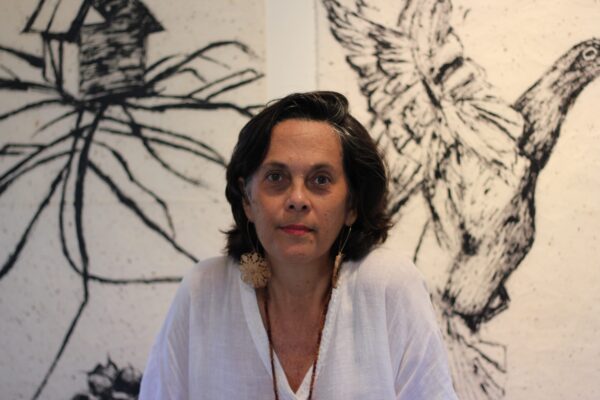
Annalee Davis is a visual artist, cultural instigator, educator and writer, with a hybrid practice. She works at the intersection of biography and history, focusing on post-plantation economies by engaging with a particular landscape on Barbados. Her studio, located on a working dairy farm, operated historically as a 17th century sugarcane plantation, offering a critical context for her practice by engaging with the residue of the plantation. She has been making and showing her work regionally and internationally since the early nineties. In 2011, Annalee founded Fresh Milk, an arts platform and micro-residency programme. In 2012 she co-founded Caribbean Linked, an annual residency in Aruba, cohering emerging artists, writers and curators from the Caribbean and Latin America. In 2015, she co-founded Tilting Axis, an independent visual arts platform bridging the Caribbean through annual encounters. From 2016-2018, she was Caribbean Arts Manager with the British Council, developing programming in Cuba, Jamaica and Trinidad and Tobago, and part-time tutor at Barbados Community College (2005-2018). She received a BFA from the Maryland Institute, College of Art (1986) and an MFA from Rutgers, The State University of New Jersey (1989).
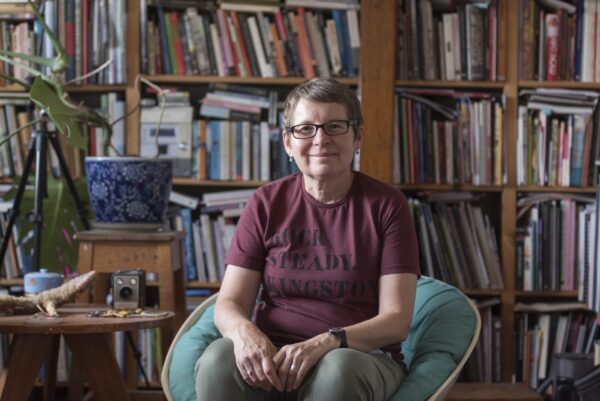
Julie Gough is a Trawlwoolway (Tasmanian Aboriginal) artist, writer and curator based in Hobart. Her Briggs-Johnson family have lived in the Latrobe region of North West Tasmania since the 1840s, with Tebrikunna in far north eastern Lutruwita (Tasmania) their Traditional Country. Gough’s art and research practice often involves uncovering and re-presenting conflicting and subsumed histories, many referring to her family’s experiences as Tasmanian Aboriginal people. Gough holds a PhD from the University of Tasmania (Visual Arts, 2001), a Masters degree (Visual Arts) University of London, Goldsmiths College (1998), and Bachelor degrees in Visual Arts (Curtin University), Prehistory and English literature (University of West Australia). In 2018 a monograph on her art: Fugitive History, was published by UWA Press, and her short fictionella: Shale, was produced by A Published Event. Since 1994 Julie has exhibited in more than 130 exhibitions that include: TENSE PAST, solo survey exhibition, Tasmanian Museum and Art Gallery, 2019; Divided Worlds, Adelaide Biennial of Australia Art, 2018; Defying Empire, National Gallery of Australia, 2017 and touring; THE NATIONAL, MCA, 2017; With Secrecy and Despatch, Campbelltown Arts Centre, 2016; UNDISCLOSED, National Gallery of Australia, 2012; Clemenger Award, National Gallery of Victoria, 2010; Biennial of Sydney, 2006; Liverpool Biennial, UK, 2001; Perspecta, AGNSW, 1995. Gough’s artwork is held in most Australian state and national gallery collections.




